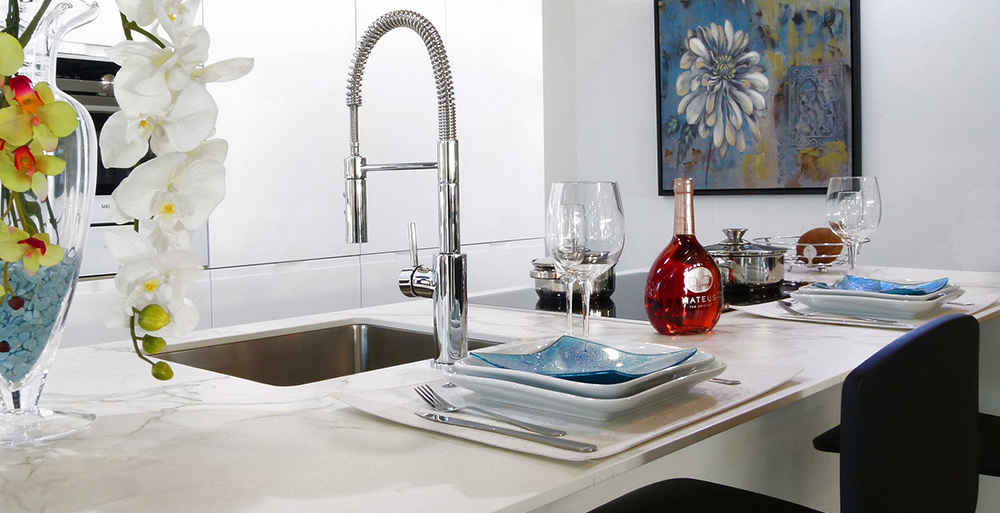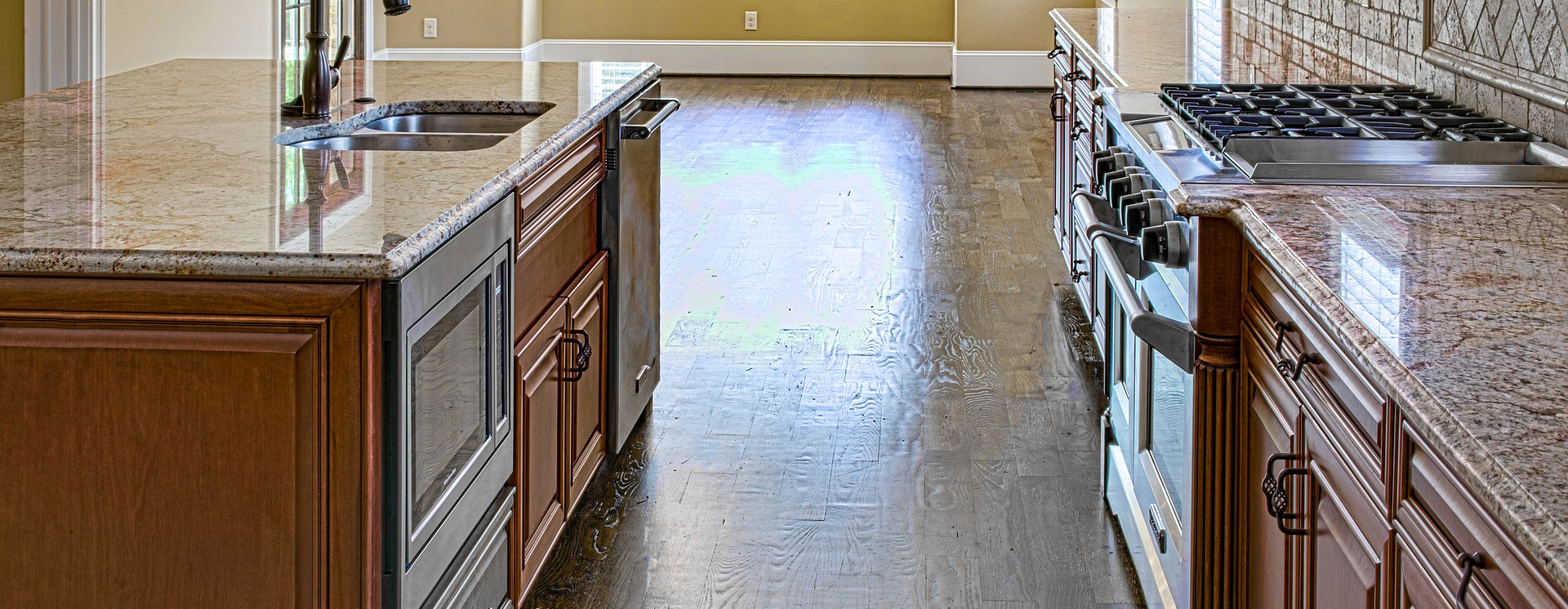
Engineered Stone & Natural Stone - A Comparison
While shopping materials for the surfaces in your new kitchen, you will likely come across a variety of options. Sorting through those options can be a challenge. One common question that people ask when trying to decide on what surface they should choose is: "What is the difference between natural stone and engineered stone?" In this article, we will compare these two types of stone and explore some of the things to consider if you are trying to decide what kind of material is right for your kitchen.
Engineered Stone
For the purposes of this discussion, we will define
engineered stone as man made surfaces that utilize quartz materials and resin to bond the material together. These types of stone are available through a variety of companies. Some choose to go with engineered stone for a variety of reasons. Let's briefly look at some of the reasons people choose engineered stone for their kitchen countertops.
One reason that homeowners choose engineered stone for kitchen countertops is because they are easy to care for on a daily basis. The basic care instructions from most companies are rather simple when it comes to engineered stone. The daily cleaning instructions will use various wording but it will usually say something like, 'regularly clean with soap and water and completely dry the surface'. This ease of clean up is actually a result of another feature of engineered stone; non-porosity.
A second reason that many select engineered stone for kitchen surfaces is its non-porous finish. In addition to making the surface easy to clean as mentioned above, it also means that stain-causing liquids cannot be absorbed into the material. As a result, stains occurring in the stone are not an issue with engineered stone.
Of course the quality of the stone contributes to its performance, so choosing an engineered stone surface for a kitchen would entail researching the various brands and/or manufacturers available before selecting a surface.

Natural Stone
In our discussion we will use the term
natural stone to refer to materials that are quarried. There are several kinds of natural stone materials and each one brings its own set of benefits and appealing features. Here we will take a brief look at some popular natural stone types and see how they compare to engineered stone.
Comparing Granite With Engineered Stone
Unlike engineered stone, granite is porous. However, the porosity of the granite varies. In other words, some granite is more porous that other granite. This means research and inquiring of your stone supplier or designer will play a key role in learning how receptive a given stone is to staining. Granite is available in a tremendously wide range of appearances. Additionally, each stone is completely unique since it is 'manufactured' by nature and not humans. This factor is one major draw for people that are seeking a unique piece of stone to serve as a kitchen surface.
Although granite is porous, that does not mean that it is tough to maintain. Establishing and keeping a regular sealing routine is not difficult if you have the proper products and know your stone well.
Marble Compared With Engineered Stone
Like Granite, marble is a natural stone that is quarried. It differs though in its composition. It also provides a wide range of looks and a uniqueness that is much tougher to obtain with engineered stone. Yet, since marble is composed of a mineral that is dissolved by acid, care must be taken if it is to be used for a surface in your kitchen. That is not to say that you should avoid it for kitchen surfaces. With the proper care and precautions, marble makes a beautiful kitchen surface.
Compared to engineered stone and granite, marble requires a bit more care and attention. However, it gives you a very elegant surface that is very classic and distinct in appearance. So much so, that many prefer it over engineered stone even though it may need more TLC.
A Comparison Between Quartzite & Engineered Stone
Another natural stone that can be compared with enigneered stone is quartzite. This material can be a source of confusion for some because of some labeling issues on the part of some in the industry. In fact, we wrote a post on our blog discussing aspects of
distinguishing quartzite from other stones. In this article though we will compare quartzite with engineered stone and briefly consider some of the features.
Quartzite is a ntural stone that is extremely hard. In fact, quartzite is often times even harder than granite. Just like other natural stones, the porosity varies depending on the environment in which it formed. Quartzite offers the hardness of granite with the elegant appeal of marble. It is also easy to care for as long as you are sure that what you have is genuine quartzite. There are cases where people have bought what they thought was a quartzite slab only to find that it is marble that has been mislabeled. Again, research and asking questions of your designer and or stone supplier can yield great results in this area.
In conclusion, comparing engineered stone with natural stone is really tough to do when dealing with generalities. As we have seen, engineered stone comes in a variety of grades and qualities. Additionally, natural stone also requires a bit of research and time to get to know a little about the stone in which you are looking to invest. Knowing what types of treatments to give your stone surface and what products you can use to clean it with are vital if you are to care for your investment properly. Here are sme helpful areas of our site that will help you with caring for your natural stone or engineered stone surfaces: